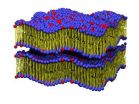(Press-News.org) Computer scientists at the University of California, San Diego have successfully funded on Kickstarter a new and improved version of CodeSpells, a first-person player game they developed that teaches players how to code.
The game's previous iteration, developed by UC San Diego computer science Ph.D. students Sarah Esper and Stephen Foster, has been in use in dozens of schools throughout the world for more than a year. The researchers have been using the game as a platform to learn about the best ways to teach children how to code. They have presented their findings at a wide range of academic conferences, including the upcoming Koli Calling International Conference on Computing Education Research Nov. 20 to 23 in Koli, Finland.
In this latest paper, "CodeSpells: Bridging Educational Language Features with Industry-Standard Languages," the researchers demonstrate that after playing CodeSpells for either four hours over four weeks or 10 hours over seven days, children ages 8 to 12 were able to write code by hand in Java.
"It is the goal of CodeSpells to provide a rich experience of computer science education to students who may not have access to an educator," Esper said.
Researchers now want to make the game more attractive and more fun to play. But they need funds to improve the game's graphics and coding interface. Enter Kickstarter, where the project has already met its $50,000 fundraising goal.
"We want the game to be educational, but our biggest goal is to make sure it's fun," Foster said.
He and Esper have co-founded ThoughtSTEM, along with UC San Diego biochemistry Ph.D. student Lindsey Handley, to teach children ages 8 to 18 how to code, via onsite classes and video games, including CodeSpells and Minecraft.
In its previous iteration, CodeSpells sent players on quests, which helped them master spells, written in Java. This new version is more open-ended much like Minecraft—a so-called sandbox game. The players are wizards that can modify the world around them at will. They can build mountains and valleys, levitate objects and start fires. They do so by using Blocky, a visual programming language created by Google, or Javascript.
The hope is that players will come up with their own quests. Researchers also hope that as players tinker with the game, they'll come up with their own exciting spells and share those. The goal is to create a vibrant online community, much like the one that has developed around Minecraft.
The game will feature several modes out of the box, but players will be able to create their own modes too. They'll have the tools to create everything from modes to survive in the wilderness to modes to balance an eco-system. They can even create multi-player magic-based sports to play with their friends.
The game will feature four elements: earth, fire, water and air, which the players can manipulate via spells. So far, computer scientists have completed an early version of gameplay for earth magic. The Kickstarter will fund the development of magic for fire, air and water, with an alpha version to be released on Christmas Day 2014, a beta version in June 2015, and the final copy of the game's creative mode to be released September 2015.
If the Kickstarter exceeds its $50,000 goal, the game's multiplayer functions will be enhanced. In addition, the game will add a fifth element, Life, which would give wizards control over animals and plants within the game. That feature would be released in summer 2016. By early 2017, players would be able to create their own species and custom characters within the game.
Rewards for the Kickstarter range from a digital copy of CodeSpells for a $10 donation to access to district-wide licenses for CodeSpells in alpha and beta versions and computational thinking courses to a teacher at each school within a school district for a $5,000 donation.
INFORMATION: END
Video game teaches kids how to code
2014-09-10
ELSE PRESS RELEASES FROM THIS DATE:
Thyroid cancer rates in Pennsylvania rising faster than rest of country
2014-09-10
Incidence of thyroid cancer is rising faster in Pennsylvania than in the rest of the United States, according to Penn State College of Medicine researchers.
"Since the mid-1970s, the incidence of thyroid cancer in the United States has more than tripled," said Dr. David Goldenberg, professor of surgery and medicine. "Thyroid cancer is now the seventh leading type of cancer in the nation. It typically occurs in young women and is projected to become the third most common cancer in women by 2019."
Papillary thyroid cancer, responsible for most of this increase, is very ...
An appetite for life
2014-09-10
A simple question about appetite can provide insights into old people's general health that may help reduce their risk of dying.
In a study published in the journal Appetite, Emeritus Professor Mark Wahlqvist from Monash University's Department of Epidemiology and Preventive Medicine and the Monash Asia Institute, led a team investigating the connection between appetite and mortality.
"Appetite is generally regarded as one of the most important indicators of health," Professor Wahlqvist said.
The urge to eat is often reduced in the elderly, with many afflicted by ...
Researchers unlock the genetic code of cancer-causing liver fluke parasite
2014-09-10
Singapore—An international team of scientists from Singapore, Thailand, China and Australia has cracked the genetic code of the liver fluke parasite, Opisthorchis viverrini, using a unique DNA analysis technique developed at A*STAR's Genome Institute of Singapore (GIS).
GIS's DNA analysis technique has allowed the researchers to further study the biology of Opisthorchis viverrini to understand the cause and the eventual development of treatments for bile duct cancer, a condition caused by the parasite. The breakthrough was published in the scientific journal Nature Communications.
Opisthorchis ...
Back pain killing your sex life?
2014-09-10
VIDEO:
Contrary to popular belief, spooning is not always the best sex position for those with a bad back, according to research from the University of Waterloo. For the first time...
Click here for more information.
Contrary to popular belief, spooning is not always the best sex position for those with a bad back, according to new research from the University of Waterloo.
For the first time ever, scientists have successfully documented the way the spine moves during sex ...
US cityscapes show consistent patterns of 'urban evolution'
2014-09-10
Most people think of city landscapes as simpler, diminished versions of the wild forests and free-flowing streams found in remote places. But in a series of studies published Sept. 10, 2014 in a special issue of the journal Biogeochemistry, scientists specializing in urban ecosystems say just the opposite is true. Urban landscapes are more complex than they seem, and from coast to coast these ecosystems can work in surprisingly similar ways, regardless of local conditions. And they have the potential to change quickly – for better or worse – depending on how people manage ...
Study shows that in baboons, as well as humans, social relationships matter
2014-09-10
Elizabeth Archie, Clare Booth Luce Assistant Professor in the Department of Biological Sciences at Notre Dame and colleagues used an incredibly rich data set on the social relationships of wild baboons which was collected on an almost daily basis, year-round, since 1984 by the Amboseli Baboon Research Project. The project, which Archie helps direct, is a long-term study of wild baboons that follows the lives of individual baboons, watching what they do and who they interact with.
"We can tell individual baboons apart by distinct features of their appearance, such as their ...
Teens' neural response to food commercials predicts future weight gain
2014-09-10
Children and adolescents see thousands of food commercials each year and most of them advertise junk foods high in sugar, fat and salt. Yet, we know almost nothing about how all of this food marketing impacts the brain, especially for teens. New research suggests that food commercials "get under the skin" of teens by activating reward regions when they are viewing ads for milk shakes, or burgers, or colas. The bad news for us is that this can result in weight gain and obesity.
In the first prospective longitudinal study to investigate neural response to unhealthy food ...
New research finds that smartphone apps are a useful tool for diet monitoring
2014-09-10
TEMPE, Ariz. (Sept. 10, 2014) - The ability and consistency in monitoring one's diet, but not dietary quality, improves with the use of smartphone applications, according to new research by Arizona State University health scientists published in the latest issue of the Journal of Nutrition Education and Behavior.
Researchers Christopher Wharton, Carol Johnston, Barbara Cunningham and Danielle Sterner at ASU's School of Nutrition and Health Promotion authored the study.
The study compared the effectiveness of a popular smartphone application called "Lose It" for dietary ...
Working during depression can offer health benefits to employees
2014-09-10
The collaborative study between the University Of Melbourne and the Menzies Research Institute at the University of Tasmania is the first to estimate the long-term costs and health outcomes of depression-related absence as compared to individuals who continue to work among employees with depression in Australia.
Lead researcher Dr Fiona Cocker from the Melbourne School of Population and Global Health said a greater understanding of the costs and consequences of both absenteeism and presenteeism would allow for more informed recommendations to be made to the benefit of ...
Researchers watch lipid molecules in motion
2014-09-10
Researchers from Göttingen in collaboration with colleagues from Augsburg have 'filmed' the movement of lipid molecules using an X-ray stroboscope at DESY. In the scientific journal Physical Review Letters, researchers lead by Professor Tim Salditt of the University of Göttingen report that their study offers new insights into the dynamics of biomolecules, which compose materials such as cell membranes. The cell membranes consist of a double layer of lipid molecules; the properties of the membranes are of great interest because they control which substances enter and exit ...






